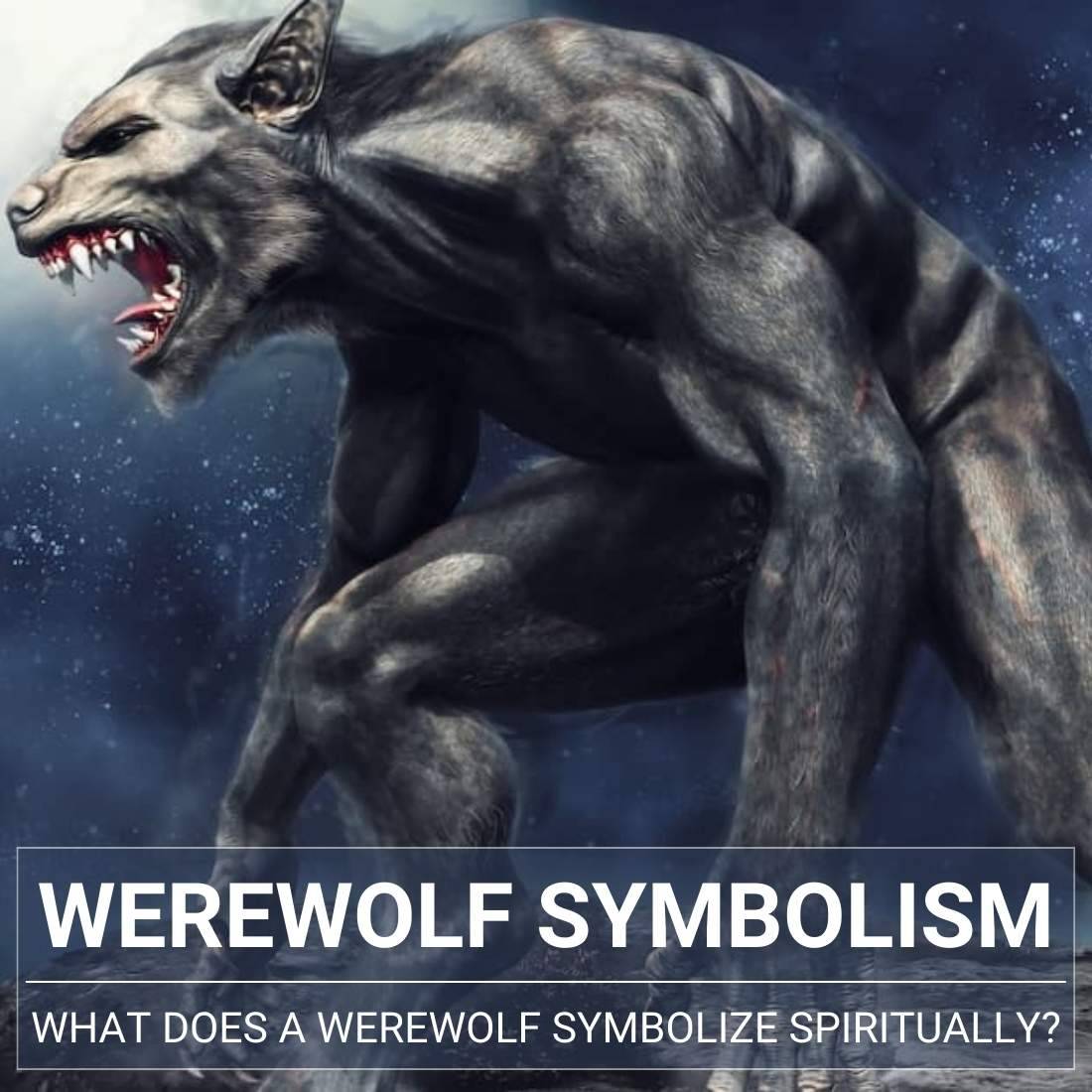A werewolf is a mythical beast found in legends, books, and movies throughout history.
Table of Contents
The Werewolf symbolism is one of the most powerful and misunderstood symbols in the world. This creature has been feared and worshipped for centuries, but its meaning has evolved over time.
While the werewolf is known for being fearsome, they also hold many more spiritual traits, like transformative or powerful – but also rather down-to-earth traits like wild and animalistic sexuality and hairy masculinity!
In this blog post, we will explore the origins of werewolf symbolism, as well as its cultural manifestations. We will also discuss how to connect with the werewolf spirit animal and totem.
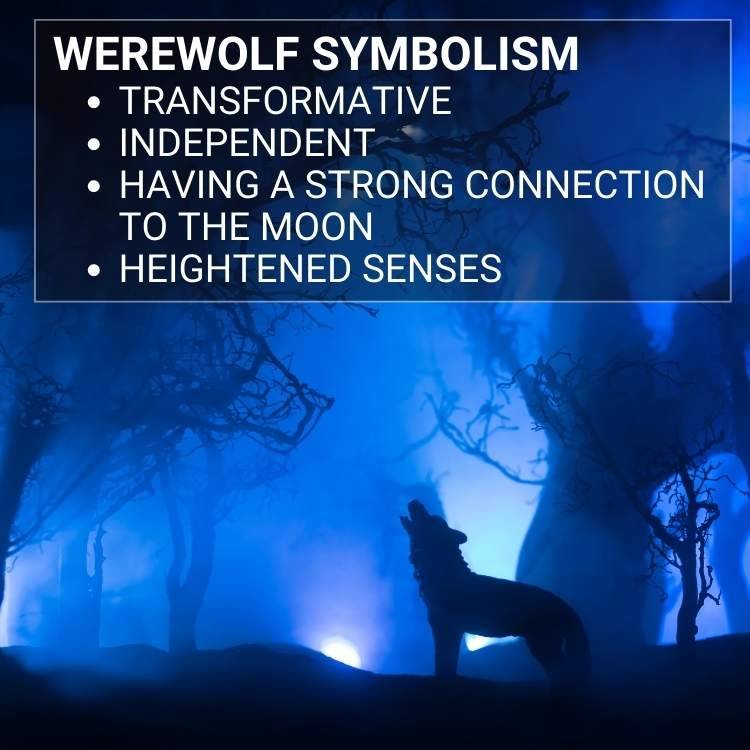
What does a werewolf symbolize?
Werewolf symbolism can be traced back to ancient times. The first recorded instance of a werewolf was in Homer’s Odyssey, in which Odysseus encounters a group of men who have turned into wolves. This story likely originated from folktales that were told around campfires. These stories were used to warn people about the dangers of venturing into unfamiliar territory or interacting with strangers.
Often thought of as a metaphor for moral decay, the werewolf symbolizes also man’s struggle to contain his wild nature. It can be understood as the struggle between (and the integration of) both “good” and “evil” within a human being – the inescapable and uncontrollable nature of our raw emotional urges, whether sexual, violent, or destructive.
The werewolf is also frequently associated with untamed energies, trickery or deceit, and the underbelly of primal human instincts.
And perhaps it is because of the werewolf’s representation of these prohibited feelings and our fascination with that conflict that it has been a culturally significant emblem for so long.
Over the centuries, werewolves are known for symbolizing these traits:
- Transformative
- Embrace our true nature
- Symbols of sexuality
- Having a strong connection to the moon
- Death and resurrection
Now, let’s explore how each of these traits holds deeper meanings.
1) Transformative
A werewolf transforms from a human to a beast. Through this process, they completely shed their identity and undergo a metamorphosis into something completely brand new.
A werewolf symbolizes your ability to completely transform who you are and your life. You have the power to make powerful changes in your life as long as you’re willing to let go of the old version yourself.
“Vampires, werewolves, fallen angels and fairies lurk in the shadows, their intentions far from honorable.”
– Jeaniene Frost
2) Embrace our true nature
Werewolves are often seen as symbols of transformation, rebirth, and new beginnings. They remind us that even in the darkest of times, we have the potential to rise up and start anew. For some people, werewolves represent all that is wild and untamed within us. They are a reminder to let go of our inhibitions and embrace our true nature.
3) Symbols of sexuality
Werewolves are also often seen as symbols of sexuality. Their wild, animalistic nature is a representation of our own primal desires and urges. In some cultures, werewolves are even considered to be erotic creatures, their very presence enough to stir up feelings of desire and lust.
4) Connection to the moon
When it’s time for a werewolf to change, they have no power to control or prevent it. The change usually occurs on a full moon, which explains the moon’s strong influence over this creature.
Werewolves remind you that sometimes situations in life are out of your control. All you can do is release resistance and let go until you can overcome them.
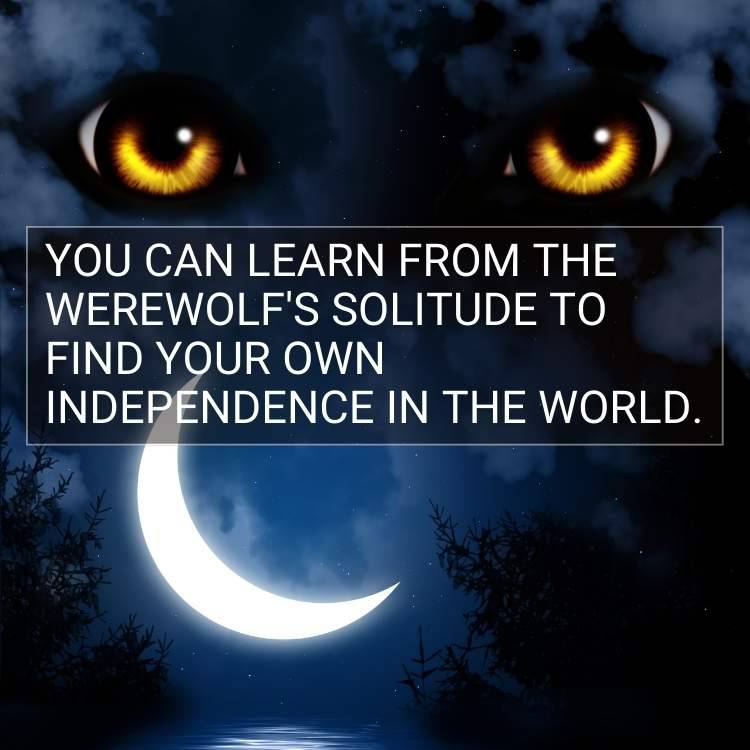
5) Death and resurrection
Werewolves have long been associated with death and resurrection. In many cultures, werewolves are seen as protectors of the dead, guarding them on their journey to the other side. In some traditions, werewolves are even said to be able to bring people back from the dead.
This connection between werewolves and death is likely due to their ability to shape shift. By changing form, werewolves symbolize our own ability to change and adapt in order to survive – even in the face of death.
Whether you believe in werewolves or not, their symbolism is deeply rooted in our collective unconscious. By understanding the spiritual meaning of werewolves, we can gain insights into our own shadows and hidden potentials.
General ways to become a werewolf
The ways to become a werewolf are many and varied, but they all point to one thing: werewolves are not just creatures of the night (check out night symbols as well), but also of the spirit. They are beings that exist between the worlds of the living and the dead, and their symbolism reflects this.
- Cursed by a werewolf
- Bitten by a werewolf
- Born a werewolf
- Drinking werewolf blood
- Exposed to the full moonlight during a lunar eclipse
The werewolf in different cultures
Werewolves are more than just a modern-day myth. The human-wolf hybrid has made its mark in many texts and legends.
Werewolf symbolism has appeared in many different cultures throughout history. In some cultures, the werewolf is seen as a positive figure, while in others it is seen as a negative one. In most cases, the werewolf is seen as a creature of transformation and change. Let’s explore the different instances werewolves have been talked about throughout the world.
Werewolf origins in Mesopotamia
The Epic of Gilgamesh is an ancient book of tales written in Mesopotamia in 2,100 BC. In this collection of stories, a man-wolf is first described. Many believe this is the first instance of the werewolf in history.
This ancient story features a character who turns into a werewolf. In this story, the werewolf is seen as a positive figure, as he helps Gilgamesh to overcome his fears and become a better person. It’s nowadays hard to imagine the werewolf being something positive but that’s what the books say!
Werewolves in greek mythology
Herodotus, a Greek historian, is known for his accounts of men transforming into wolves. These shapeshifters were actually Neuri men who hailed from what we know today as Russia. Back then, men wore wolf skin for warmth which is likely the reason Herodotus described them as he did.
Another story is about Lycaon, the King of Arcadia who to tried to trick Zeus into eating raw meat. As a punishment for his audacity in trying such an escapade (and as another example that not all gods Share Our vulnerabilities), Zeus, as a punishment, transformed Lycaon into a wolf. Lycaon became a wolf forevermore!
“Being a nocturnal creature myself, I often find myself in dark alleys or strange places late at night. If there were werewolves around, I’d be likely to run into them, being the night owl that I am.”
– Dean Ambrose
Werewolves in Ancient Rome
In 37 BCE, a Roman poet named Virgil wrote a body of work known as The Eclogues. In his writing, he described a man changing into wolf form and hiding in the woods. The man is said to have shape-shifted through the help of spirits and magic.
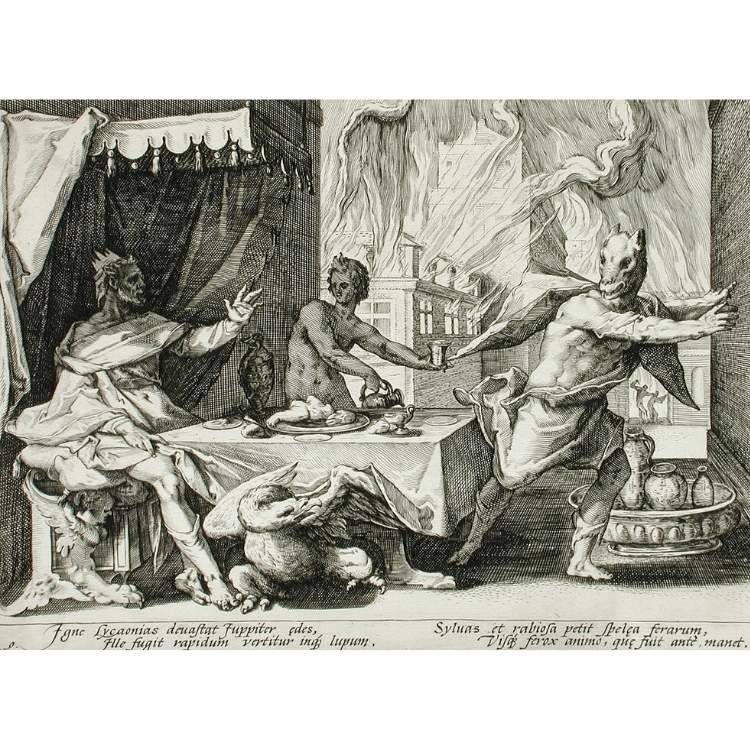
Nordic werewolf mythology
In Norse and Viking mythology, a story of a man and father, Sigmund and Sinfjotli, find enchanted wolf skins. The two try them on and are cursed to wear them until they are able to take them off on the 10th day. During this time, they are transformed into real-life wolves.
The Vikings were not only obsessed with wolves, but also the people who became them, the werewolves. They used to tell stories around roaring fires in order for long winter nights to go by quickly and be darkest before daylight comes again!
The history of the Norsemen is one that has been marred by piracy. They were known to raid villages and towns along with nordic coastal areas. The term “ware-wolf” was used for these men who operated at sea because they devastated both land AND water alike. In medieval history, they called them “sea-wolves” and “ware-wolves.”
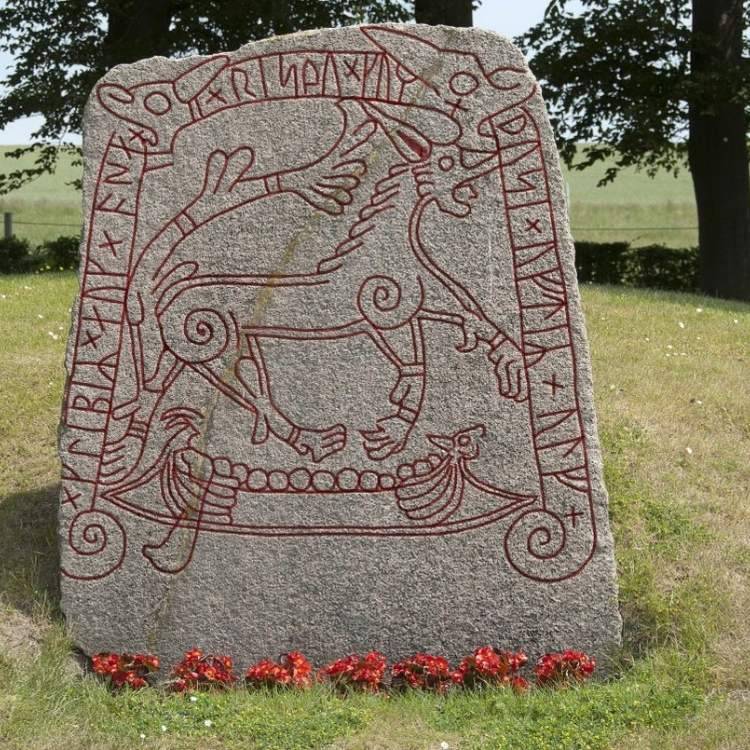
Werewolf symbolism in Mexico
In Mexico, werewolves are known as naguals. These naguals are believed to be men who have the power to change into animals in order to cause destruction. Others believe they are spiritual beings that live within different animal guides.
You can hear more about the nagual in this video, where they dive deep into the legend of the Mexican werewolf.
Irish werewolf folklore
In 12th-century Irish folklore, there’s a tale of two Ossory people who were cursed to be wolves by a saint because of their sins. The man and woman would stay wolves for a period of seven years until transferring the curse onto two others. The wolves were discovered by a traveling priest and a young boy who helped nurse one of the sick wolves back to health.
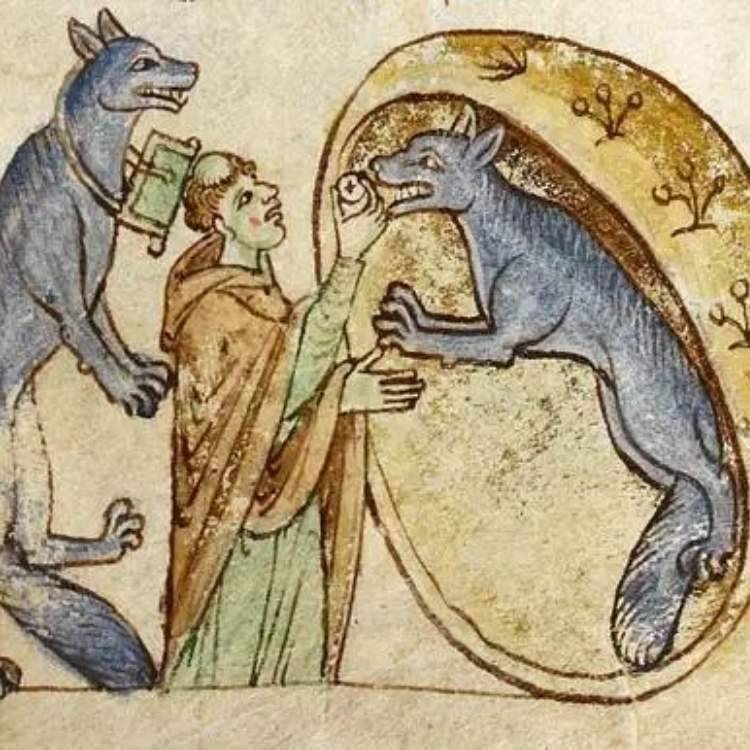
Native American folklore and the werewolf
One legend, in particular, mentions a prehistoric Native American tribe that lived in the region that is now Wisconsin in the United States. Members of the tribe (presumably those who later became the Fox tribe) may have first experienced the gift of the werewolf here.
The story goes about two brothers and a woodland wolf god in Native American legend. The two brothers went in search of food because their village was going hungry. They managed to catch a deer and shared what little they had with a man who was actually a wolf god. In exchange, he gave them both the ability to transform into wolves and ensured that their village would never again go without food. He cautioned them that if they did so when they were in wolf form, they would be punished by losing themselves.
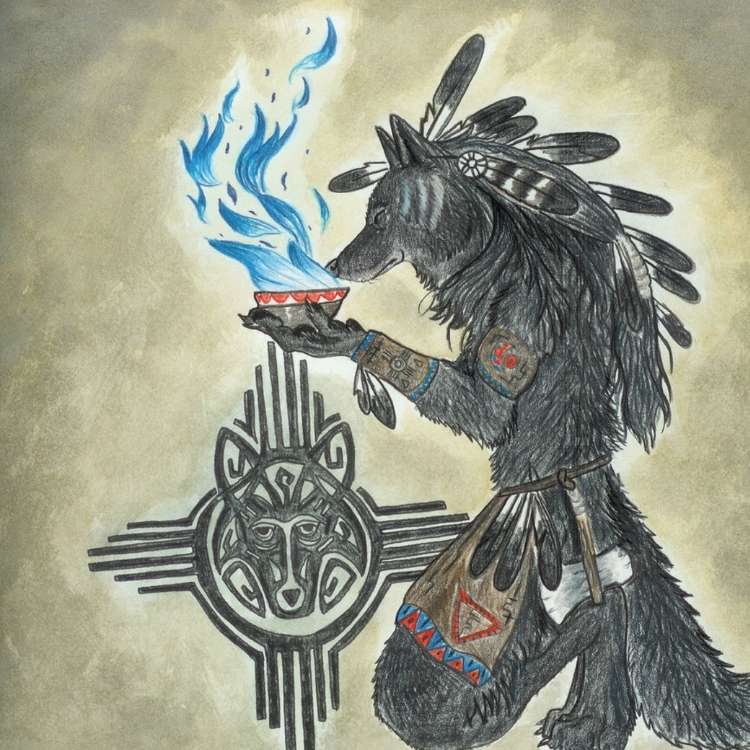
Popular culture in recent years
The Werewolf symbolism has also appeared in popular culture in recent years. One of the most famous examples is the Twilight series by Stephenie Meyer. In this series, werewolves are seen as dangerous creatures that must be feared. However, they are also seen as protectors of those they love.
Also, Michael Jackson’s “transformation” in the Thriller video (directed by John Landis, who, incidentally, also directed the 1981 film An American Werewolf in London) made werewolves popular in pop culture and gave them a more positive image.
The spiritual symbolism of the werewolf
A spirit animal is a healer, messenger, or teacher that has a special relationship with an individual, an animal totem is an animal that has a special meaning or symbolism for a person. Animal totems can represent your spiritual guide, your guardian angel, or a power animal that you feel connected to.
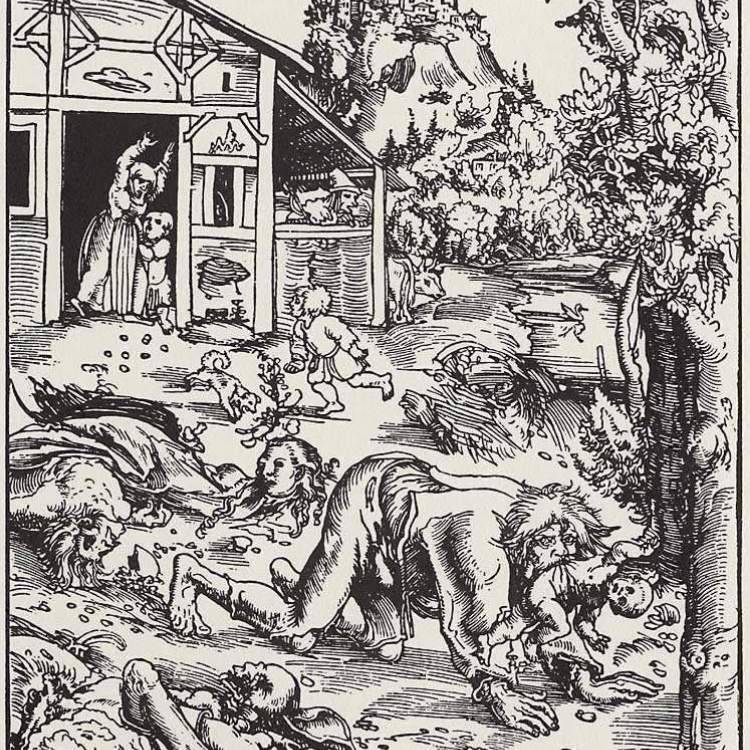
Werewolf spirit animal
A werewolf constantly struggles to find a balance between their human life and wolf form. They are often seen to be losing their sense of control and unable to prevent their animalistic nature.
A werewolf spirit will enter your world during a period where you need to awaken your inner wolf in order to establish dominance over your life.
“Werewolves were far more terrifying than vampires. It is probably the idea of seeing the human within the beast and knowing you can’t reach it. It might as well be a great white shark. There is no sitting down and discussing Proust with it, which the traditional vampire model seems to leave room for. You can have a conversation.”
– Glen Duncan
The werewolf spirit animal is also a powerful symbol of transformation. If you feel called to connect with this creature, it may be because you are going through or about to go through a major life change.
Animal totem
If your totem animal is the werewolf, you’ll share similar qualities of transformation. Every full moon, a werewolf knows they will undergo an imminent change. No matter how hard they fight it, there’s no stopping the events that are destined to occur.
Since you’ve been a child, your life has likely changed in more ways than most people’s. You have a more constant need for transformation and growth in your lifetime.
The werewolf totem can help you to embrace your shadow self, as well as your power and strength. When working with the werewolf energy, it is important to stay grounded and focused, as this totem can also represent recklessness and impulsiveness.
Werewolf power animal
A werewolf is a representation of the subconscious or the “hidden” aspects of one’s mind. These creatures shift in secret, conceal their identity, and only transform at night.
As your power animal, the werewolf urges you to explore your shadow self, which is the aspect of you that is hidden within your subconscious. Allow yourself to acknowledge your deepest desires, thoughts, and beliefs, and explore yourself for the depth of who you are; you may be surprised at what you find.
If you are interested in connecting with your werewolf spirit animal, there are a few things you can do. First, spend time in nature and connect with the earth. This will help to ground you and give you the strength you need to transform.
You can also meditate on the image of a werewolf, or even wear jewelry or clothing with werewolf symbolism. By doing this, you will begin to tap into the powerful energy of this creature.
The werewolf is a fiercely mysterious creature that has made its way around the world through different times, cultures, and legends. They appear as destructive monsters that hide in the shadows, keeping their secrets hidden from everyone around them.
While some may be afraid of a werewolf’s animalistic nature, there is a lot of wisdom that they can teach you. Let go of fear, and embrace your inner wolf.
Meaning of dreaming of werewolves
Werewolves in dreams might be a symbol of how you feel about your significant other. The dreamer could have aggressive or fearful feelings towards the person, depending on what type of werewolf they are!
If the werewolf is attacking you in the dream, it could be a sign that you’re feeling threatened or even threatened by something in your waking life. On the other hand, if you’re the one transforming into a werewolf in the dream, it could be a sign that you’re feeling out of control and uncertain about yourself.
Werewolf dreams can also be symbolic of repressed anger or rage. If you’ve been bottling up your emotions, they might come out in this way.
References
- History.com – Werewolf Legends
- Kidskonnect – Werewolf Facts
- World History – The Epic of Gilgamesh
- The Conversation – Ancient Origins of Werewolves
- Historic Mysteries – Werewolf Legends
- What Is My Spirit Animal – Werewolf Symbolism & Meaning
Also interesting
If you like mythical creatures, you might like also:
- Centaur Symbolism: What It Means For You and How to Harness Its Power
- Griffin Symbolism: Why They Should Be Your Most Sought After Imaginary Friends
- Phoenix Symbolism: What The Mythical Bird Symbolizes and What It Means Spiritually
- Vampire Symbolism: The Meaning Behind The Gruesome But Fascinating Monster
